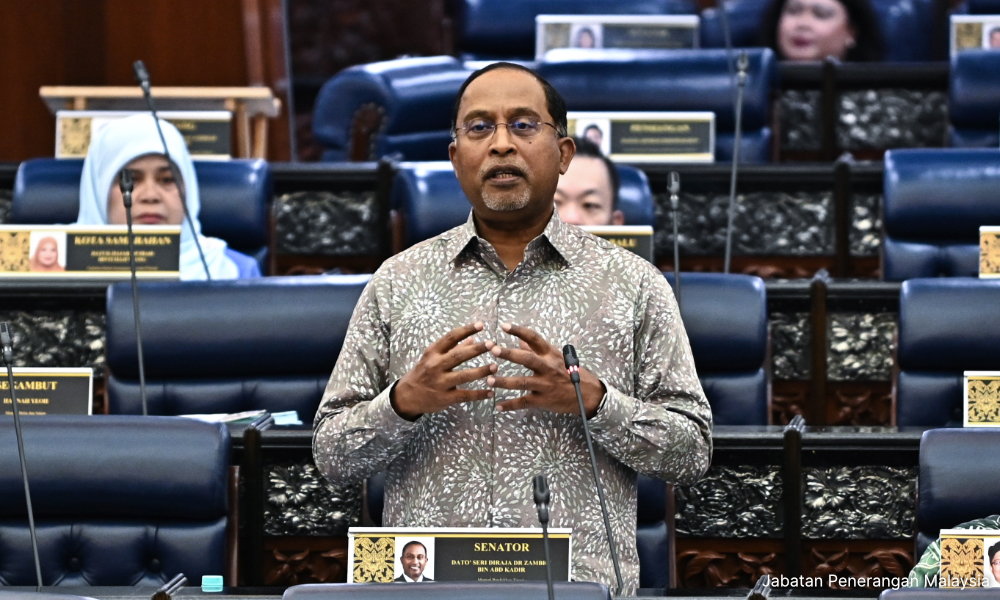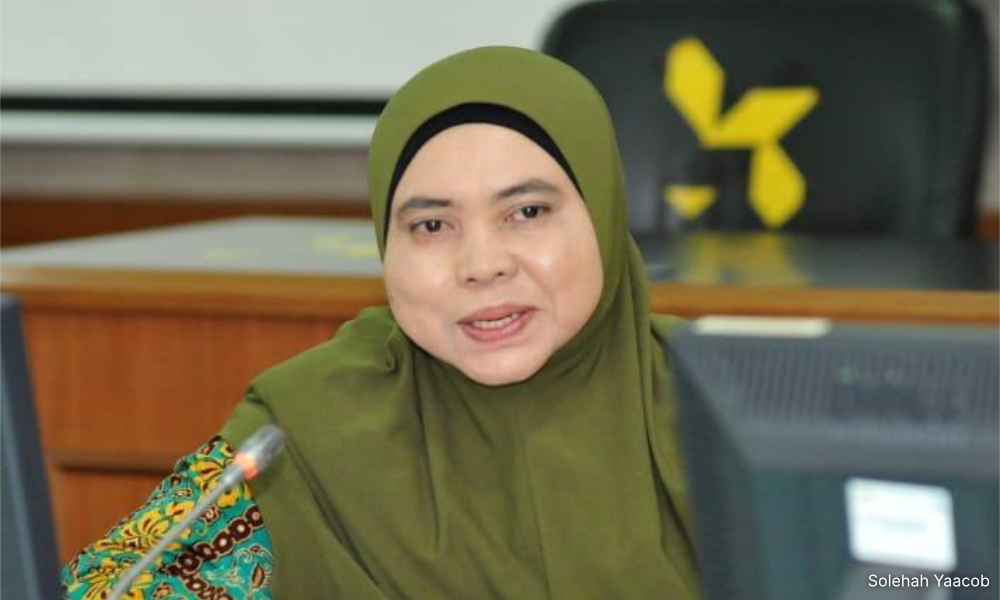
'Prophet's wife from Kedah': Minister wants factual, not populist scholars
Ili Aqilah, Alyaa Alhadjri & N Faizal Ghazali
Published: Oct 24, 2024 3:55 PM
PARLIAMENT | Higher Education Minister Zambry Abdul Kadir has urged academics to base their opinions on sound research and facts instead of making populist statements.
“The baseless theory that (Prophet Muhammad’s wife) Siti Khadijah came from Kedah, for example, which caused confusion.
"As Syed Hussein Alatas described it, this is 'intellectual laziness,' a form of 'captive mind,'” he said during the ministerial question session at the Dewan Rakyat today.
Zambry (above) was responding to a supplementary question from Suhaizan Kaiat (Harapan - Pulai), who asked him to clarify the line between intellectual freedom and the potential for irresponsible parties to monopolise academic discourse.
The “Siti Khadijah originating from Kedah” statement was related to International Islamic University of Malaysia (IIUM) professor Solehah Yaacob, who had mentioned that the prophet’s wife originated from the “Malay archipelago”.

Solehah Yaacob
However, the academic later claimed that the video featuring her, which went viral, had been edited and this led to the misunderstanding.
IIUM subsequently took action in accordance with its staff code of ethics.
Expanding on his point, Zambry referenced Edward Said’s book “The Representation of the Intellectual”, in which the Palestinian-American philosopher said anyone can speak of any subject based on traditions and facts.
“Discipline must guide intellectuals, allowing them to speak freely but based on solid foundations and good data. We don't want intellectuals to be seen as any different from ordinary people without credibility,” he added.
Additionally, Zambry addressed a question from Saifuddin Abdullah (PN-Indera Makhota), who urged the ministry to prevent situations like the ban imposed by UKM, which prohibited its staff from making public statements.
"I have reminded universities that if there is any confusion or ambiguity in interpreting a directive, it should be communicated to relevant parties, including the Higher Education Ministry, to clarify matters," he replied.
Review Act 605
Zambry also mentioned a high-level meeting to explore why such constraints exist in academia and that he had requested a review of Act 605 (which relates to the discipline of, and the imposition of a surcharge on, officers of statutory bodies) to allow exemptions for public universities, which are considered statutory bodies.
“These steps are forward-thinking and radical. I am working to ensure that universities are not stifled by fear of expressing their views, provided that intellectual traditions are upheld.
“Academics must not speak without substance; their arguments must be based on facts, not baseless theories,” Zambry added, stating that the ministry would re-examine the act in this context.
On Oct 17, former education minister Maszlee Malik highlighted an internal memo from UKM’s Department of Registrar, reminding academics not to make public statements without authorisation.
UKM later clarified that while it does not stifle academic freedom, statements from staff must be appropriately presented.
However, the academic later claimed that the video featuring her, which went viral, had been edited and this led to the misunderstanding.
IIUM subsequently took action in accordance with its staff code of ethics.
Expanding on his point, Zambry referenced Edward Said’s book “The Representation of the Intellectual”, in which the Palestinian-American philosopher said anyone can speak of any subject based on traditions and facts.
“Discipline must guide intellectuals, allowing them to speak freely but based on solid foundations and good data. We don't want intellectuals to be seen as any different from ordinary people without credibility,” he added.
Additionally, Zambry addressed a question from Saifuddin Abdullah (PN-Indera Makhota), who urged the ministry to prevent situations like the ban imposed by UKM, which prohibited its staff from making public statements.
"I have reminded universities that if there is any confusion or ambiguity in interpreting a directive, it should be communicated to relevant parties, including the Higher Education Ministry, to clarify matters," he replied.
Review Act 605
Zambry also mentioned a high-level meeting to explore why such constraints exist in academia and that he had requested a review of Act 605 (which relates to the discipline of, and the imposition of a surcharge on, officers of statutory bodies) to allow exemptions for public universities, which are considered statutory bodies.
“These steps are forward-thinking and radical. I am working to ensure that universities are not stifled by fear of expressing their views, provided that intellectual traditions are upheld.
“Academics must not speak without substance; their arguments must be based on facts, not baseless theories,” Zambry added, stating that the ministry would re-examine the act in this context.
On Oct 17, former education minister Maszlee Malik highlighted an internal memo from UKM’s Department of Registrar, reminding academics not to make public statements without authorisation.
UKM later clarified that while it does not stifle academic freedom, statements from staff must be appropriately presented.
No comments:
Post a Comment